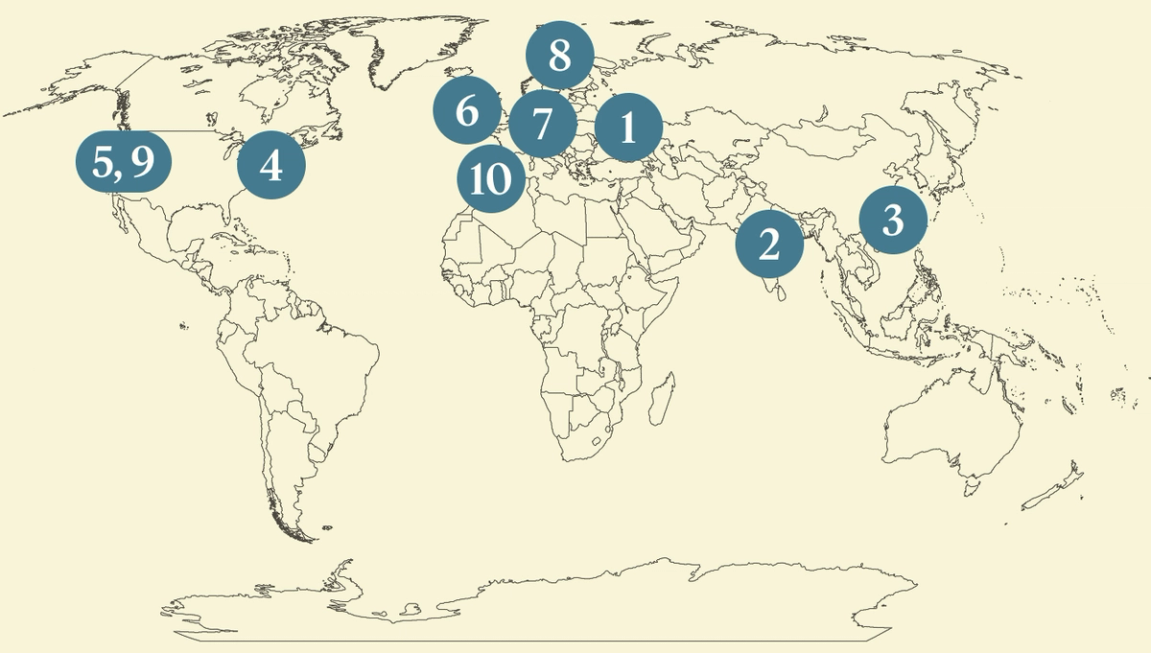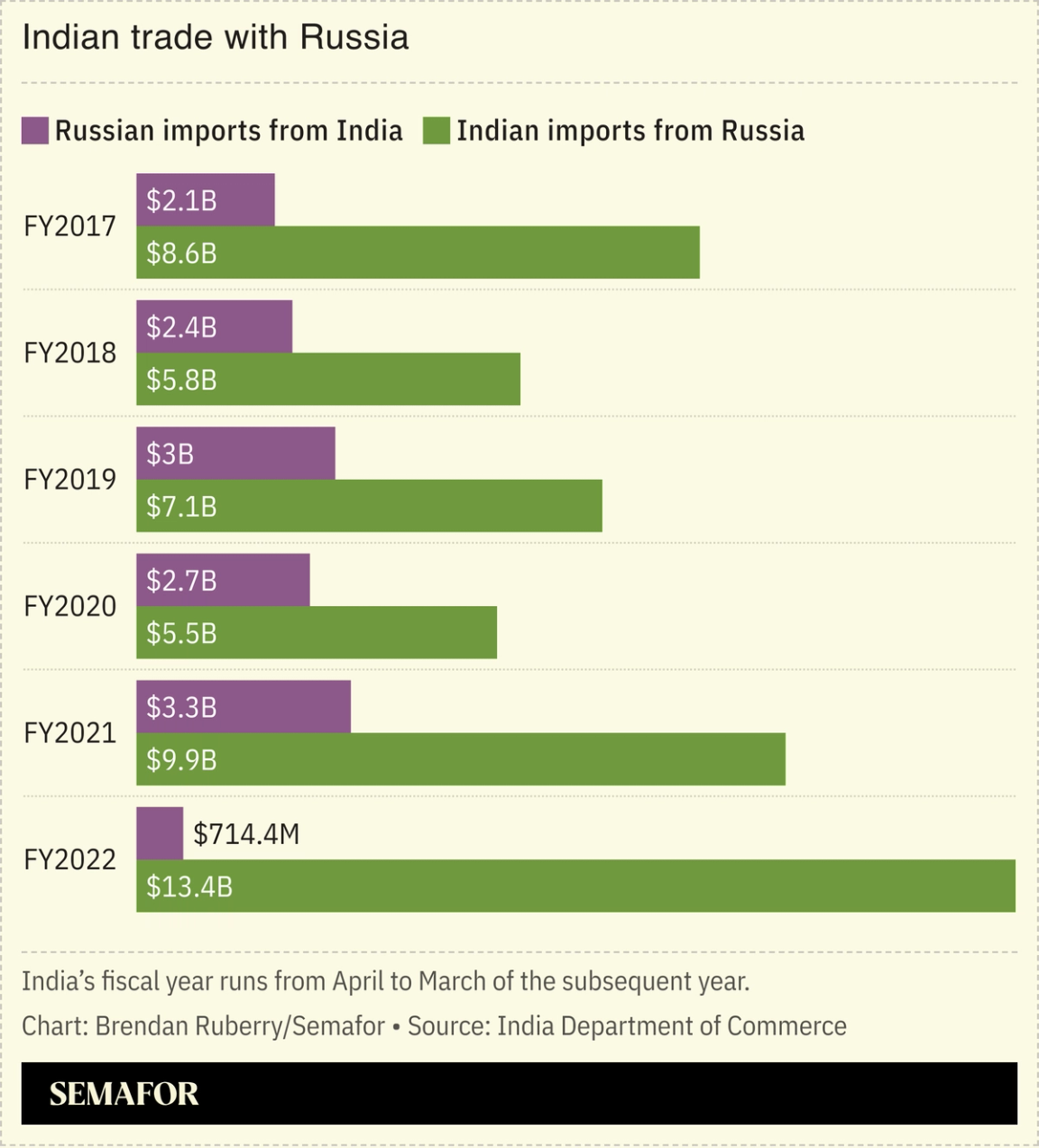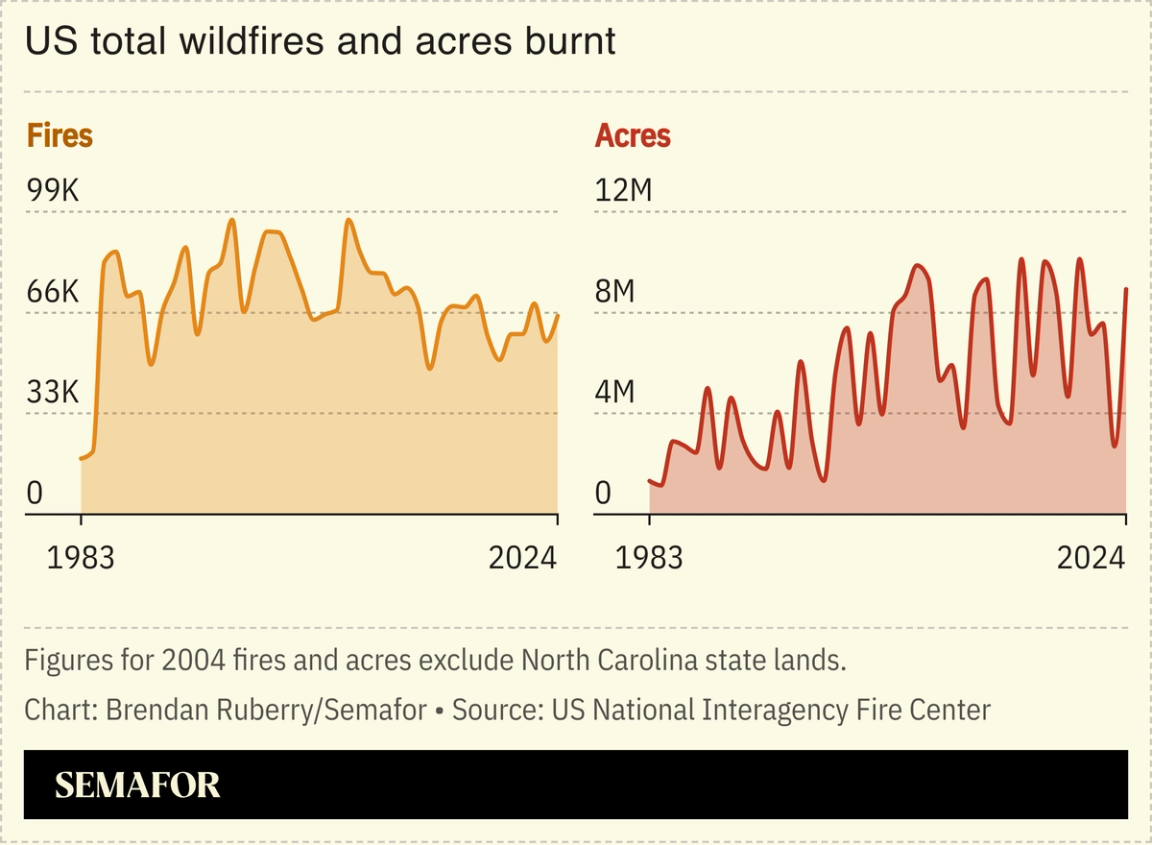| | Ukrainian and European leaders press Donald Trump on providing security guarantees for Kyiv, the cos͏ ͏ ͏ ͏ ͏ ͏ |
| |   O CARBALLIÑO O CARBALLIÑO |   KYIV KYIV |   QINGDAO QINGDAO |
 | Flagship |  |
| |
|
The World Today |  - Trump, Zelenskyy meet again
- Putin debriefs Modi
- Xi’s military goals at risk
- Chinese meme stocks in US
- Private credit powers AI boom
- Soho House goes private
- Ozempic gets cheaper
- Treating ADHD
- Masking firefighters
- Trouble in ‘octopus capital’
 What a painting about quivering jelly says about our society. |
|
Trump, Zelenskyy strike warmer tone |
 Alexander Drago/Reuters Alexander Drago/ReutersUkrainian President Volodymyr Zelenskyy and European allies pressed Donald Trump on security guarantees for Kyiv as part of a peace deal with Russia. Monday’s landmark gathering at the White House was far warmer than the last time Zelenskyy visited Washington and clashed with Trump. Both men expressed hope for three-way talks with Putin aimed at ending the war, though fraught issues like territorial lines and the presence of NATO troops in Ukraine could pose hurdles to peace. Even as the European leaders heaped praise on Trump and advocated for longterm support from Washington, the US president offered only vague signals over ensuring US guarantees for Kyiv’s security, and dodged questions about what exactly a deal might look like. |
|
Modi-Putin call affirms close ties |
 A call between the leaders of Russia and India affirmed the countries’ close ties despite Washington’s demands for New Delhi to wean itself off Russian oil. Indian Prime Minister Narendra Modi on Monday thanked his “friend,” Russia’s Vladimir Putin, for briefing him on Putin’s recent meeting with US President Donald Trump. Modi is caught in the geopolitical “game of chicken” between Washington and Moscow, The Indian Express wrote: India wants Trump to reverse his tariff penalty over its economic ties to Russia, while still maintaining friendly relations with Moscow. But Washington is ramping up pressure, with Trump’s top trade adviser slamming India’s dependence on Russian energy as “opportunistic and deeply corrosive of the world’s efforts to isolate Putin’s war economy.” |
|
Xi losing confidence in military |
 Xinhua News Agency via Getty Images Xinhua News Agency via Getty ImagesA leadership crisis could derail China’s aim to rival US military strength by the mid-century, analysts say. The People’s Liberation Army’s stated goal is to challenge the world’s “most powerful military” by 2049, but it has been plagued by internal crises. Since 2022, dozens of officers have been removed, and several seats on a key council are empty after members’ arrests or disappearances. The extent of the purge could well exceed that under Mao Zedong’s rule, two China experts noted in Foreign Affairs. The crackdown reflects leader Xi Jinping’s mafia don-like grip over the military, they wrote, and his dissatisfaction with it: Xi is “obsessed” with ensuring the PLA can fight the US military, but isn’t confident it can. |
|
Chinese meme stocks collapse |
 Jeenah Moon/Reuters Jeenah Moon/ReutersInvestors lost billions of dollars after a handful of small US-listed Chinese companies plunged in value last month, in a meme stock collapse that could be tied to fraud, the Financial Times reported. The stock movements carry the hallmarks of a “pump and dump” scheme, in which a stock is artificially inflated before being abruptly sold off. The stocks were advertised on social media and plugged in WhatsApp groups run by people purporting to be legitimate brokers. A record number of small Chinese companies are going public in the US: Earlier this summer, shares of a Chinese herbal medicine group spiked — raising the company’s value to $38 billion, despite reporting zero revenue — but the stock has since fallen 83%. |
|
Private credit bankrolls AI boom |
 Leah Millis/Reuters Leah Millis/ReutersSilicon Valley is increasingly turning to non-bank lenders to fund its headlong plunge into artificial intelligence, raising worries that the AI boom is becoming reliant on more opaque and untested types of borrowing. Private loans to the tech industry — made by lightly regulated credit funds, rather than deposit-taking banks — grew to $450 billion by early this year, as Meta, Amazon, and OpenAI look for new sources of cash to pay for data centers. Wall Street investment firms have rushed into the gap opened by banks, which have pulled back from some types of project financing. UBS analysts cautioned it could create a borrowing bubble — and one that’s harder for financial regulators to keep an eye on. |
|
 Doug Peters/Penske Media via Getty Images Doug Peters/Penske Media via Getty ImagesSoho House is going private in a $2.7 billion deal, just four years after its IPO. The deal, led by industry giant MCR Hotels, follows a series of financial struggles for the private member club operator, which pursued rapid global expansion and helped popularize a new generation of less formal and business-oriented member clubs. But some investors and members worried that growth undermined the exclusivity that Soho House built its brand on. A short seller argued last year the company had a “broken business model and terrible accounting” that was “eerily similar to WeWork,” the shared office space provider that fell into bankruptcy. |
|
 George Frey/Reuters George Frey/ReutersOzempic is getting cheaper in the US. Novo Nordisk, the Danish pharma giant behind the GLP-1 diabetes and weight-loss drug, said it halved the monthly cost to $499 for patients without health insurance. Novo Nordisk has struggled in the US market this year: It was slow to introduce a direct-to-consumer sales platform, and competitors rolled out cheaper Ozempic copycats. Rival Eli Lilly has outpaced Novo in weight loss medication prescriptions. The Danish firm is also facing trade pressures, as US President Donald Trump has threatened to hike duties on pharmaceutical imports. But the Ozempic price cut could appease Trump, who has pushed for drug companies to lower their prices. |
|
ADHD drugs can have wider benefits |
Treating people for attention deficit hyperactivity disorder reduces criminality, drug abuse, suicide, and traffic accidents, research suggested. Trials of ADHD drugs have shown that they reduce symptoms and improve school and work performance, but there has been little research into their impacts on wider behavior: People with the condition are more likely to end up in trouble with the police or make other impulsive decisions that cause them problems. A study of 150,000 Swedish people with ADHD compared those treated straight away with those for whom treatment was delayed. It found those given the drugs were 25% less likely to gain criminal convictions and 15% less likely to attempt suicide. |
|
US firefighters are getting sicker |
 Longer and more intense wildfire seasons are sickening US firefighters, who have less respiratory protection than global peers, The New York Times reported. Wildfires in the US now occur almost year-round — there have been more than 41,000 this year — and many wildland firefighters are being diagnosed with aggressive cancers in their 20s and 30s, or require lung transplants in their 40s. Unlike Greece, Australia, and Canada, the US Forest Service doesn’t provide respirators and medical masks to firefighters, and critics blame the agency for downplaying the long-term health risks to protect recruitment amid staffing shortages. Some firefighters described a “macho” mindset that makes crewmembers resistant to masking up: “It feels like superhero work,” one firefighter told the Times. |
|
‘Octopus capital’ runs out of octopuses |
 Miguel Riopa/AFP via Getty Images Miguel Riopa/AFP via Getty ImagesSpain’s “octopus capital” is running out of octopuses. O Carballiño in Galicia has an annual octopus festival, a huge octopus statue, and a century-old factory for processing the seafood for global exports. But that factory has not sourced a single animal locally in 10 years, instead importing them from North Africa. Galicia’s octopus population relies on an ocean current that has been impacted by climate change, and numbers have declined due to overfishing: Spain closed its octopus fishery for three months this summer to bring back the population,“but once the season opens, we’ll destroy it all in two weeks,” one fisherman told The Associated Press. “This used to be a sustainable industry, but now we’ve broken an entire ecosystem.” |
|
 Aug. 19: - The US publishes state-by-state employment figures for July.
- Home Depot, BHP, and Medtronic report earnings.
- Mission: Impossible — The Final Reckoning arrives on digital streaming platforms.
|
|
|